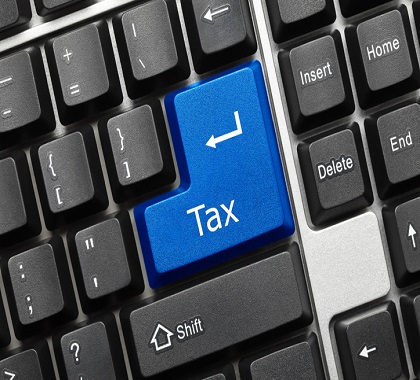On June 21, in South Dakota v. Wayfair, Inc., the U.S. Supreme Court upheld South Dakota’s internet sales tax law, effectively overturning the 25-year-old “physical presence” standard set in Quill Corp. v. North Dakota. Up until now, the Quill decision prevented states from collecting sales taxes on purchases made from out-of-state vendors, unless the vendor has a physical presence such as property or employees located in the taxing state.
Many states have passed “Amazon tax” laws, some of which have been struck down, that required out-of-state businesses to collect sales taxes if the businesses had commissioned affiliates in the taxing state. A few other states established a “cookie nexus” standard, which considered internet cookies on customers’ computers a physical presence of businesses.
In South Dakota v. Wayfair, Inc., the Supreme Court ruled in favor of South Dakota, citing the ubiquity of e-commerce and the necessity of having a uniform tax structure that better suits the modern economy. In particular, the justices favored the state’s internet sales tax because of its minimalist structure. For example, the South Dakota tax bars retroactive collection, minimizes the number of local sales tax rates, requires uniformity between state and local sales tax bases, and excludes businesses with very low sales and/or transactions from tax collection, among other aspects.
The Supreme Court recommended other states follow the Mount Rushmore State in implementing an internet sales tax that does not “impose undue burdens” on interstate commerce. For the five states (Alaska, Delaware, Montana, New Hampshire, and Oregon) that currently exempt sales tax on e-commerce purchases, you should keep it that way.
Small businesses and entrepreneurs already face a mounting pile of regulation, fees, and licenses just to get their enterprise up and running. The collection of online sales taxes can be burdensome for businesses, but especially small businesses, which have to dedicate additional resources to comply with state and local jurisdictions. How many resources? Well, enough to be in full compliance with the more than 10,800 distinct state, county, city, and district sales tax jurisdictions nationally. Currently, Iowa, Missouri, and Texas each have more than 1,000 such jurisdictions within their borders.
Making compliance even more frustrating is the fact that sales and use tax rates change 609 times each year, on average. To avoid or lessen the likelihood of an IRS audit, many businesses rely on tax software services to collect and remit taxes quarterly to the various taxing jurisdictions.
In general, sales taxes also burden lower-income consumers disproportionally because they spend a larger percentage of their household income on goods and services, such as groceries, food, and clothing. Thus, a larger share of their limited income goes to sales taxes. Internet sales taxes may also threaten the growth of the e-commerce industry, one of the key future growth sectors of the U.S. economy.
Fourteen states and the District of Columbia maintain a physical presence rule, meaning sales taxes are not collected on internet purchases unless the online retailer has property or employees located in the state. This was the standard preserved under Quill. These states should resist the temptation to levy sales taxes on out-of-state sellers in the wake of the Supreme Court’s latest decision.
What We’re Working On
Health Care
An Innovative Source for Rural Health Care Emerges (Guest: FCC Chairman Ajit Pai)
In this episode of the Heartland Daily Podcast, Sarah Lee, managing editor of Health Care News, speaks with Ajit Pai, chairman of the Federal Communications Commission, about his efforts to boost health care access in rural America through telemedicine.
Budget & Tax
Ignoring Federal Tax Conformity Would Cause a Tax Hike for Arizonans
In this Research & Commentary, Senior Policy Analyst Matthew Glans discusses how Arizona’s tax system has been impacted by the recent federal tax reforms and how taxpayers could see a tax increase if lawmakers don’t act to reform how the state conforms its taxes with the federal tax code. “If Arizona wants to attract businesses and maintain a thriving economy, lawmakers ought to do three simple things: 1) institute ‘rolling’ conformity, 2) simplify the tax code, 3) and reduce rates on personal and corporate income,” wrote Glans.
Education
Private School Choice Programs around the Globe Have Positive Impact on Students
In this Research & Commentary, Policy Analyst Tim Benson discusses the doctoral dissertation of Corey A. DeAngelis of the Cato Institute’s Center for Educational Freedom, which concludes that the causal evidence on the effectiveness of private schooling and private school choice programs worldwide reveals these programs have a positive effect on student achievement and non-cognitive skills. Furthermore, students in private schools demonstrated better results on standardized testing and less proclivity for adult criminal behavior. Benson agrees with DeAngelis’ findings and argues private school choice programs offer families improved access to high-quality schools that meet their widely diverse needs and desires.
Energy & Environment
Miracle Technology with No Environmental Downside
In this edition of the Heartland Daily Podcast, Benson joins host Senior Fellow H. Sterling Burnett to discuss three recent peer-reviewed studies that confirm what more than two-dozen others have shown: Fracking is not polluting groundwater supplies. Although environmentalists try to draw attention to phantom harms from fracking, the real story goes largely unpublicized. Available evidence overwhelming shows fracking has ushered in an American economic renaissance, making U.S. energy dominant, providing millions of jobs, lowering energy costs for drivers and homeowners, and improving the environment.
From Our Free-Market Friends
FIRE Survey Reveals Student Support for Due Process
In this article, The Atlas Network examines the results of a recent survey released by the Foundation for Individual Rights in Education titled “Proceeding Accordingly: What Students Think about Due Process on Campus.” As the report notes, universities across the country have come under fire for improperly handing disciplinary hearings in response to allegations of student misconduct. Results of the study show that students strongly support due process. According to the survey, 85 percent of students support the presumption of innocence until proven guilty, 91 percent support the ability of the accused to provide additional evidence, and 89 percent support the accused receiving written notice of the allegations. Students on both sides of the aisle recognize the many flaws in the current college disciplinary process and desire major reforms.
Click here to subscribe to The Leaflet, the weekly government relations e-newsletter.




